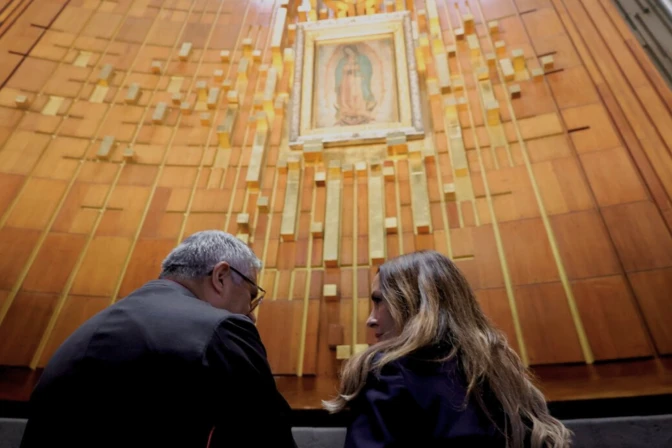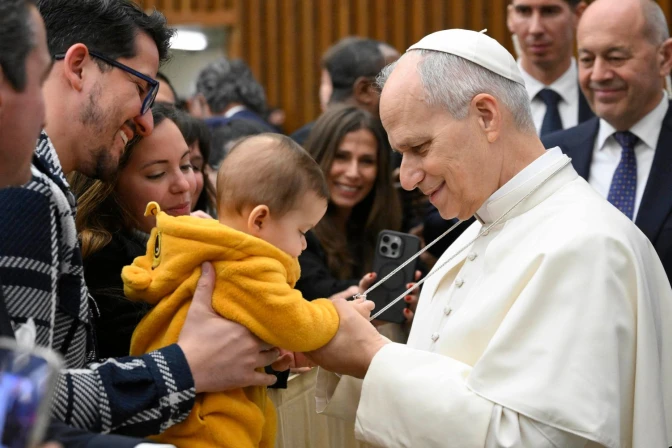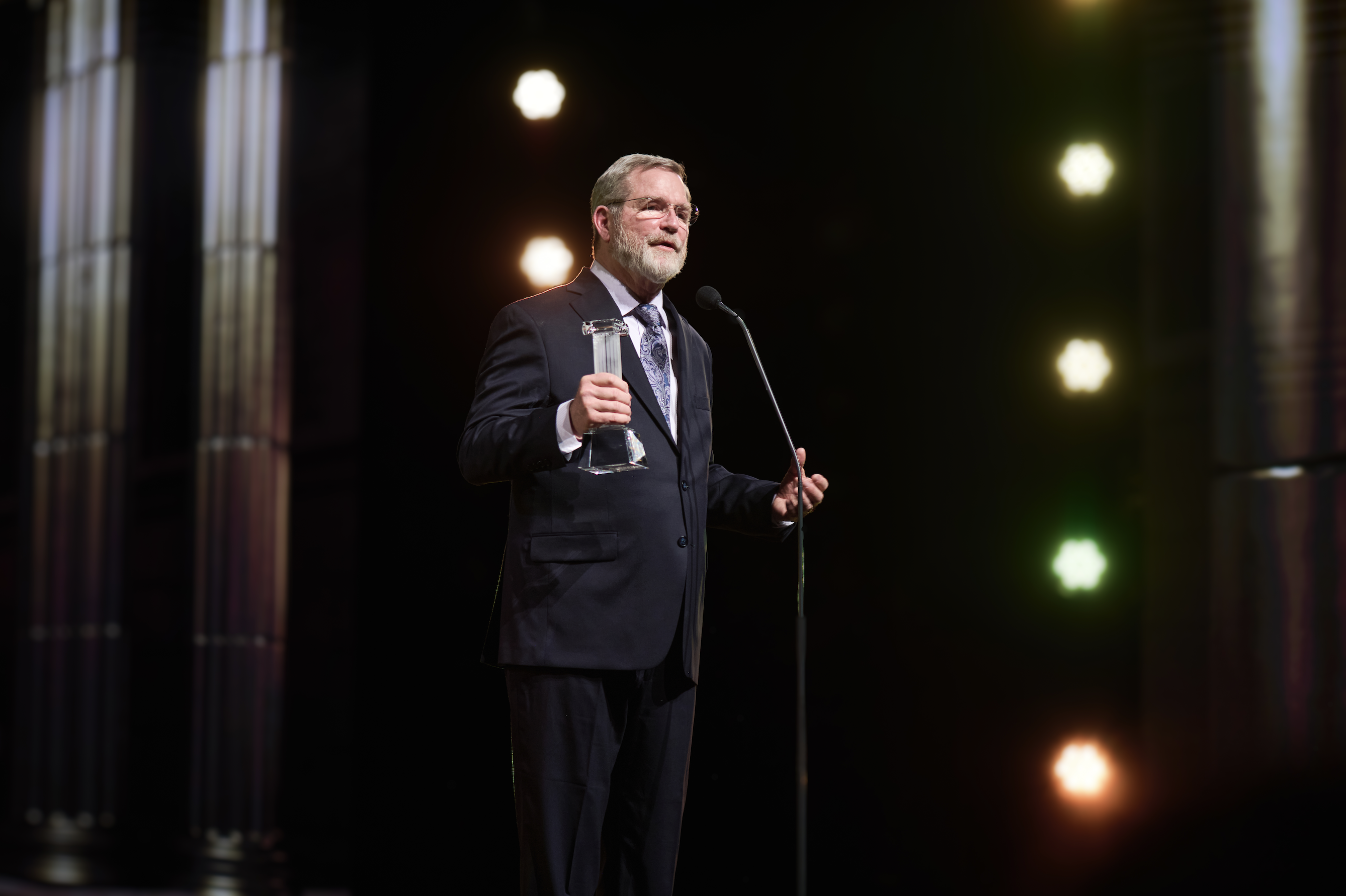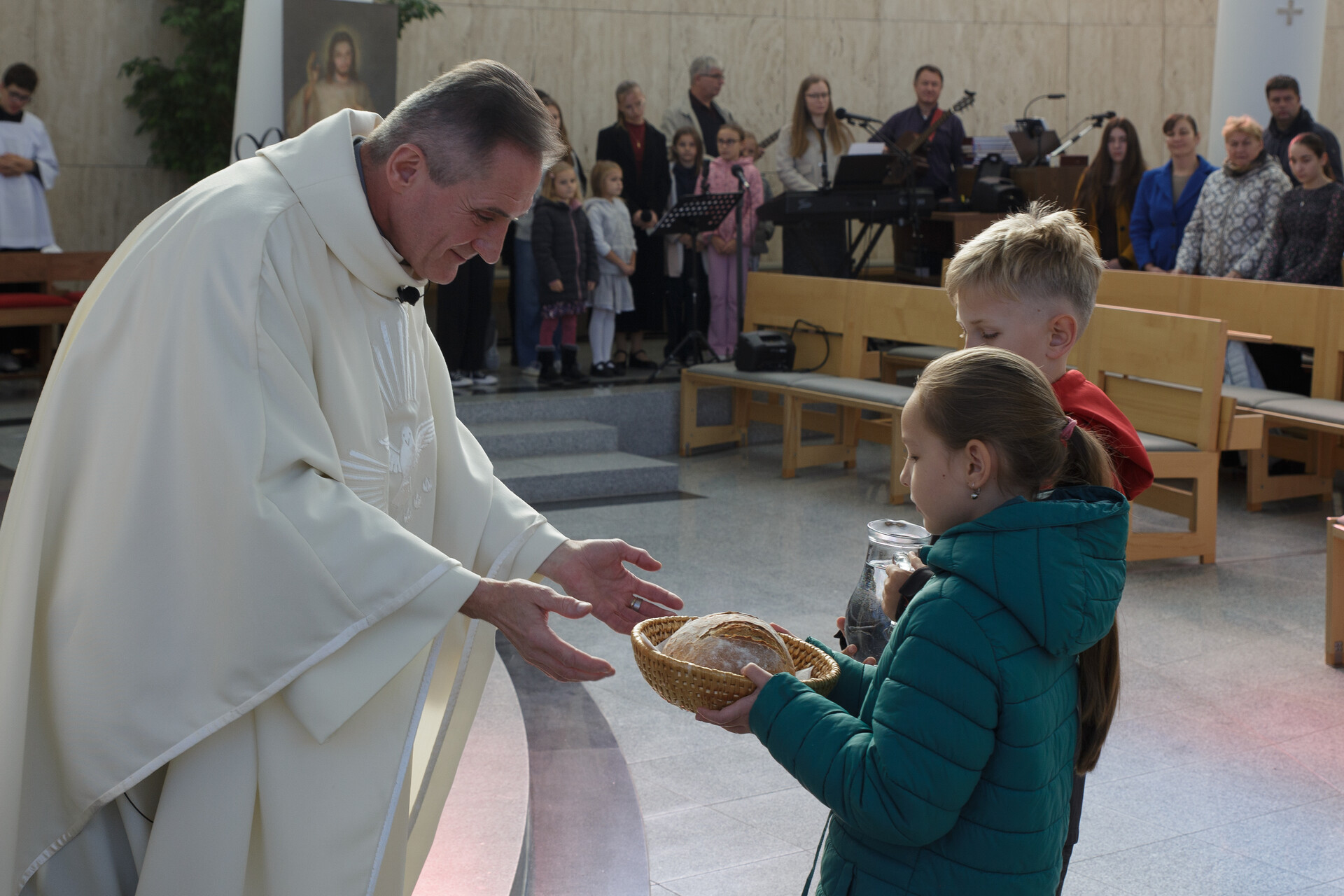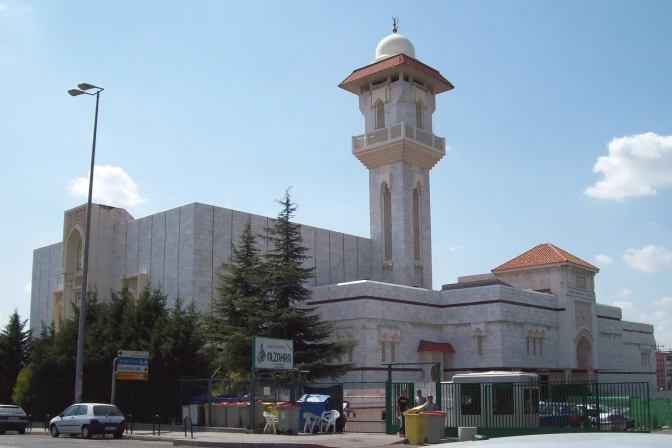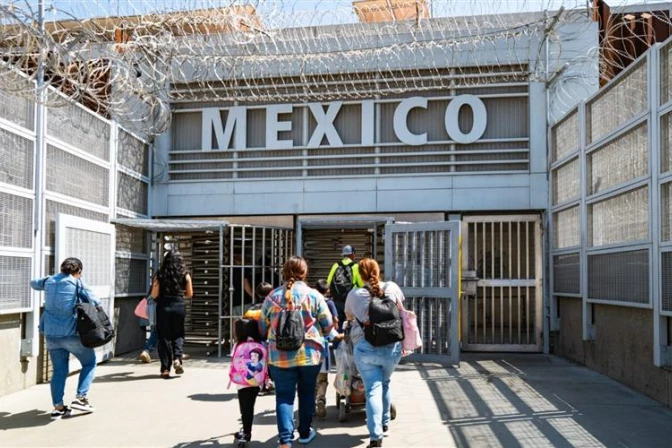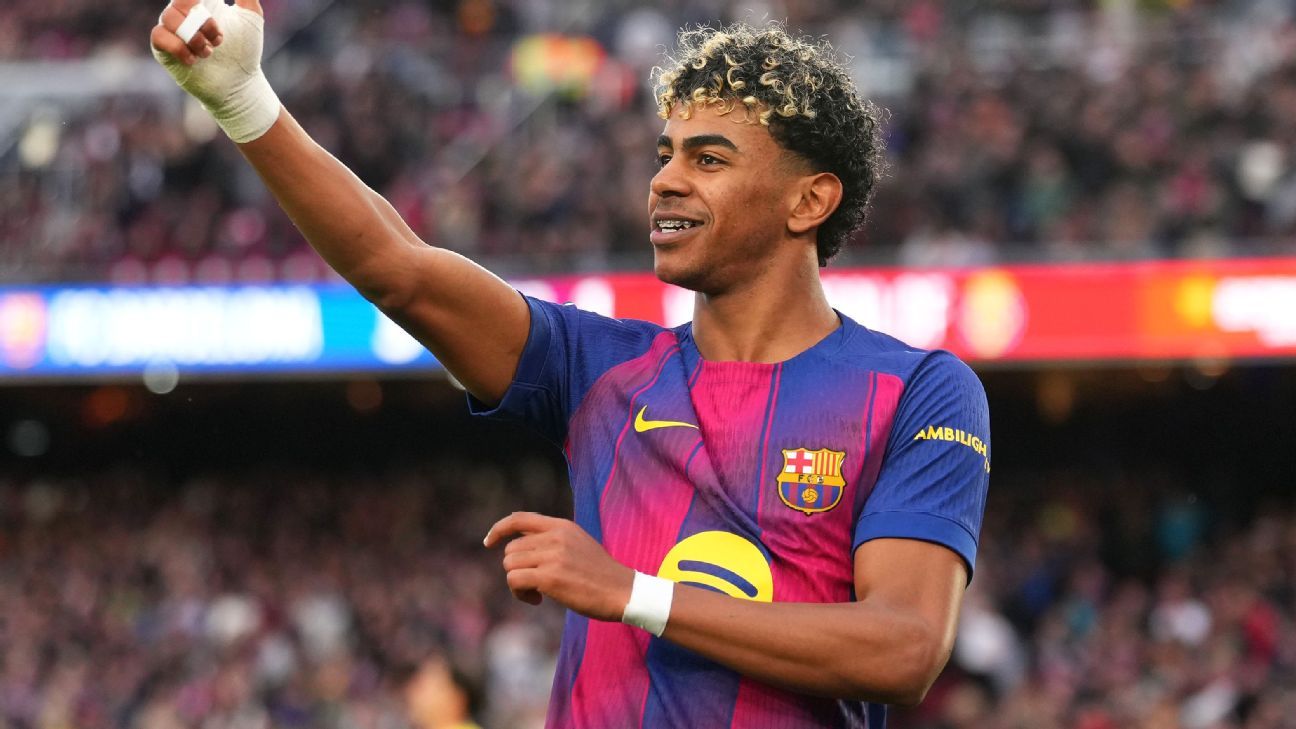ACI Prensa Staff, Sep 24, 2025 / 07:00 am
At age 94 and with seven decades of priesthood behind him, Catalan priest Father José Giner, who has lived in Ecuador for 70 years, said he doesn’t feel like a teacher but rather like a “disciple.”
“At this age, I don’t feel like a teacher at all: I’m still a disciple. I don’t want to be a ‘has-been priest’; that’s why I strive to keep up to date; I read a lot, and I ask young people to correct me,” he said in an interview with ACI Prensa, CNA’s Spanish-language news partner.
Giner surprises many with his vitality: He starts the day with a cold shower, does exercises, plays pingpong, watches sports, reads, and spends time woodworking, where he creates religious art. And, most importantly, he said he celebrates Mass twice a day.
 Father José Giner officiates a wedding. Credit: Father José Giner
Father José Giner officiates a wedding. Credit: Father José Giner“I’m a very ordinary man, but with something wonderful: Christ, who is the true sun. I’m a poor 94-year-old man — that’s my true description. The essential thing is that I am a priest for eternity, and everything else is secondary. I believe the goal of life is to work for God and allow his goodness to penetrate us completely,” he said.
“I think very little about myself because I was always taught to value and appreciate others. With these values, I say, ‘Lord, I contribute very little,’ but what matters is what I can give as a priest,” he explained.
The priest, a member of Opus Dei who belongs to St. Josemaría Church in Guayaquil, also highlighted the fraternity he shares with his brother priests. In total, he has 15-20 priest friends, all from the apostolate, who meet frequently to read, play guitar, sing, and share lunch. He emphasized that it is an atmosphere of unity and fraternity.
 Father José Giner shares a meal with friends. Credit: Father José Giner
Father José Giner shares a meal with friends. Credit: Father José GinerThe secret to his health
Giner said he exercises every day. “It’s important, and doctors always recommend it. Also — although it may seem funny — I have an electric skateboard. Sometimes I use it near my house; people laugh when they see me, and I say, ‘Bye, bye!’ because I’m so happy,” he shared with a laugh.
“I also read a lot. I have a very sharp mind and I like to read scientists, important authors, and also novelists. I never say ‘I’m tired’; on the contrary, I think you have to walk and move. Thanks to that, I feel very agile: I walk calmly, I move without problems. Sometimes my body aches — it’s natural — but I feel that God gives me the grace to stay on my feet. That’s the strength that sustains me,” he explained.
However, he said the most important thing in his daily life is celebrating Mass and praying: “I celebrate Mass every day, always. The most important thing is that I have tried to pray a lot. I have prayers to maintain my inner peace, and God has given me a very contemplative life. I spend all day talking to the Lord.”
The priest said that when he raises his gaze to heaven, he asks God: “Give me, Lord, your light: Give it to this neighborhood, to these girls and boys, to all who need it. Grant them the fire of the Holy Spirit, because that is what sets us on fire and gives us life.”
“Everything else is fleeting, something external,” he added.
St. Josemaría Escrivá invited him to become a priest
Giner, originally from Barcelona, Spain, arrived in Ecuador 70 years ago and considers it his spiritual home. “Sometimes I travel, but my life is here, in Guayaquil. I have worked in schools like Torremar, always in contact with young people. That has been a wonderful part of my life, because being with young people gives you special strength.”
(Story continues below)
Subscribe to our daily newsletter
His vocation emerged in adolescence, when he discovered Opus Dei. “At 17, I asked to be admitted to the [apostolate]. Later, in Rome, I had the grace of meeting St. Josemaría Escrivá personally and lived with him for three years. He was a true father to me, and that helped me to make that final gift of myself to my priestly vocation.”
It was St. Josemaría himself who asked Giner if he wanted to be a priest and told him it was “the greatest celebration a man can experience in this world.” For Giner, that call meant serving God and contributing to making the world a better place.
“Then I came to Ecuador, where I have served for so many years. I am a theologian, I completed all my studies, but beyond academic knowledge, the important thing is the wisdom to live the faith day by day,” he said.
 Father José Giner with friends. Credit: Father José Giner
Father José Giner with friends. Credit: Father José GinerPriests, ‘a country’s treasure’
For 25 years, Giner was a judicial vicar in Ecuador, an experience he said he values for his accompaniment of other priests. “That has given me great inner peace, because I deeply love and value my brother priests. For me, they are ‘a country’s treasure.’ If there are no priests in a country, we are facing an immense catastrophe.”
What brings him the greatest joy when looking back on his life is knowing that in his 70 years of priesthood, “there have been so many people who have converted, so many people who have drawn closer to God… So many souls I have been able to accompany… And there are wonderful things that, I believe, remain between God and oneself.”
 Father José Giner. Credit: Father José Giner
Father José Giner. Credit: Father José Giner“They call me at any time, even if I’m having lunch or dinner, and I drop everything to hear a confession. Why? Because I believe that a soul is worth much more than anything we have around us. And that gives me great joy,” he added.
Message to the new generations
Amid his reflections, the priest had special words for young people. “I tell young people: Be faithful, because God gives you the grace.”
“I ask people, and especially priests, to be very faithful, very real, joyful, happy, and spiritual; to be steeped in the Bible and pedagogy, and to understand that they are a fundamental pillar of a country’s culture and tradition,” he noted.
 Father José Giner baptizes a baby. Credit: Father José Giner
Father José Giner baptizes a baby. Credit: Father José GinerGiner reiterated that if there were a lack of priests, the world would become “a dark, almost frozen place.”
“That’s why I insist: The important thing is to be faithful. That fidelity is what sustains the Church and illuminates the world,” he said.
“The priesthood is forever: It brings joy, divine happiness, and, above all, a totally full life… People seek a full life; the priest embodies it because, in a certain sense, it is a participation in Christ, in the Holy Spirit; it is a vocation that lasts,” he added.
A critical moment for the Church
Giner said he believes a profound moral crisis began in 1968, symbolized by the Sorbonne University motto “It Is Forbidden to Forbid.” For him, the slogan paved the way for a cultural and spiritual decline that has deepened in recent decades.
“The change has been immense,” he said. “Young people today are often unpunctual, superficial, and lack a sense of responsibility. But I try to adapt to that world and, at the same time, elevate it.”
He emphasized that, despite the current challenges, he trusts in the Church’s fidelity: “God’s hands are not closed to his love or mercy. He continues to illuminate us like the golden rays of the sun.”
 Father José Giner with a group of young men. Credit: Father José Giner
Father José Giner with a group of young men. Credit: Father José Giner“Today we are at a critical moment for the Church, but it is also an opportunity that God gives us to draw closer to him. If there is anything that truly needs to be saved in the world, it is the Church and the peace of God. Everything else is fleeting, it goes away like smoke,” he said.
Regarding the future, he has confidence: “Many are afraid, but I say: ‘Why?’ Every century has had its own fears, but the future is in God’s hands. This gives fantastic sensibility and profound peace.”
Looking back and reflecting on his mission in life, he said: “Seventy years is like watching the leaves fall from a tree. You can’t stand still, because day by day God’s will is fulfilled.”
He concluded: “The important thing, in the end, is to always seek the meaning of the life that God has given us.”
 Father José Giner with a young family. Credit: Father José Giner
Father José Giner with a young family. Credit: Father José GinerThis story was first published by ACI Prensa, CNA’s Spanish-language news partner. It has been translated and adapted by CNA.
Diego Lopez Marina has a degree in Communication Sciences with a specialization in journalism from the University of San Martín de Porres (Peru). He began his professional career in 2015, as an editor for the Journalistic Archive area of the Diario El Comercio. In 2016 he began working as an writer for ACI Prensa and since 2018 he has been working as a web editor.
 (1).png)
 5 months ago
32
5 months ago
32


